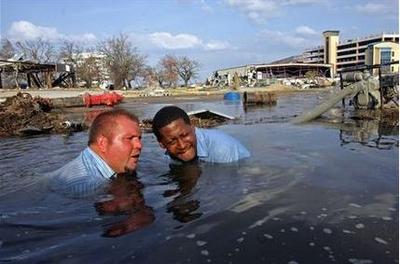Mountain Bikes Meet Mountain Lions
"This is an opportunity of a lifetime -- to combine a mountain lion hunt with an elk hunt. We've been waiting 11 years for a bull elk tag and the opportunity was there and we saw no reason not to take the chance," says Baumgartner.
As a way to conserve fuel and use more back roads Baumgartner and her husband will hunt from mountain bikes. She hopes this experience might get her closer to a lion but her focus is on bagging an elk.
Mountain biking female mountain lion hunters ... This kind of screws up the kneejerk. Shouldn't cat killers be driving ATVs, drooling chaw and pitching beer cans down the ravines?
Hunting stirs ambivalent feelings. I grew up in a family where not a lot was passed down, but guns were one of the few personal possessions that did show up in the wills. I turned in my draft card, but kept my NRA Safe Hunter badge. Hunting for your dinner is more honest than eating supermarket kill, because it forces you to confront the animal whose life you'll take. You must choose death, not just lean or extra lean.
I remember going out with my father on an after work hunt — his mission to bring home venison to our family of eight. He was business-like; no romancing about the hunt or joys of spending the day in the woods for him. Near dusk, he had one long shot at a distant buck that he decided not to take. I could tell his heart wasn't in it, and now I have my Daddy's heart.
I prefer my tidy arrangement with the feedlot and the butcher, but can't claim a higher ground than those who have chosen otherwise, make a good clean kill and use it well. If a South Dakota Elk becomes steaks and sausages, then so be it. But if a mountain lion becomes just a trophy and story, then I think that's an abominable use of a mountain bike and 15 bucks.






